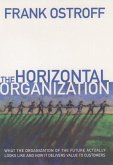The advent of the knowledge economy changes the ways in which firms organize their activities and how they strategize in the market place. This non-technical volume lays the foundations for an analysis of these phenomena. In particular, it shows how 'knowledge-based approaches' in management studies may be complemented by key ideas from the economics of organization. The discussion is both theoretical and empirical.
The rise of the knowledge economy has far-reaching implications for the nature of economic organization as well as firm strategy. Not surprisingly, thinking in management studies as well as in economics has been profoundly affected by these changes. Thus, management thinking in particular has been increasingly characterized by a schism between those who advocate 'knowledge' or 'capabilities-based' approaches in the strategy and organization fields and those who
adopt more economics-influenced approaches, notably the economics of organization.
This book is a sustained attempt to overcome this schism. Its basic argument is that knowledge-based and organizational economics approaches are not substitutes but complements. In particular, organizational economics has much to contribute with respect to furthering the understanding of efficient organization and strategy in the emerging knowledge economy. This theme is taken through several theoretical as well as empirical variations. Themes such as the incentive liabilities of flat,
'knowledge-based' organizations and the role of complementary HRM practices for fostering knowledge sharing and creation are extensively treated. The book thus contains important implications for knowledge management, organizational design, and firm strategy."
The book encompasses nine chapters which critically examine current thinking on strategy, and organization. The reasoning is non-technical. While primarily aimed at a management studies audience, economists and other social scientists will also benefit from it, including Advanced Students, Academics, and Researchers.
Hinweis: Dieser Artikel kann nur an eine deutsche Lieferadresse ausgeliefert werden.
The rise of the knowledge economy has far-reaching implications for the nature of economic organization as well as firm strategy. Not surprisingly, thinking in management studies as well as in economics has been profoundly affected by these changes. Thus, management thinking in particular has been increasingly characterized by a schism between those who advocate 'knowledge' or 'capabilities-based' approaches in the strategy and organization fields and those who
adopt more economics-influenced approaches, notably the economics of organization.
This book is a sustained attempt to overcome this schism. Its basic argument is that knowledge-based and organizational economics approaches are not substitutes but complements. In particular, organizational economics has much to contribute with respect to furthering the understanding of efficient organization and strategy in the emerging knowledge economy. This theme is taken through several theoretical as well as empirical variations. Themes such as the incentive liabilities of flat,
'knowledge-based' organizations and the role of complementary HRM practices for fostering knowledge sharing and creation are extensively treated. The book thus contains important implications for knowledge management, organizational design, and firm strategy."
The book encompasses nine chapters which critically examine current thinking on strategy, and organization. The reasoning is non-technical. While primarily aimed at a management studies audience, economists and other social scientists will also benefit from it, including Advanced Students, Academics, and Researchers.
Hinweis: Dieser Artikel kann nur an eine deutsche Lieferadresse ausgeliefert werden.








